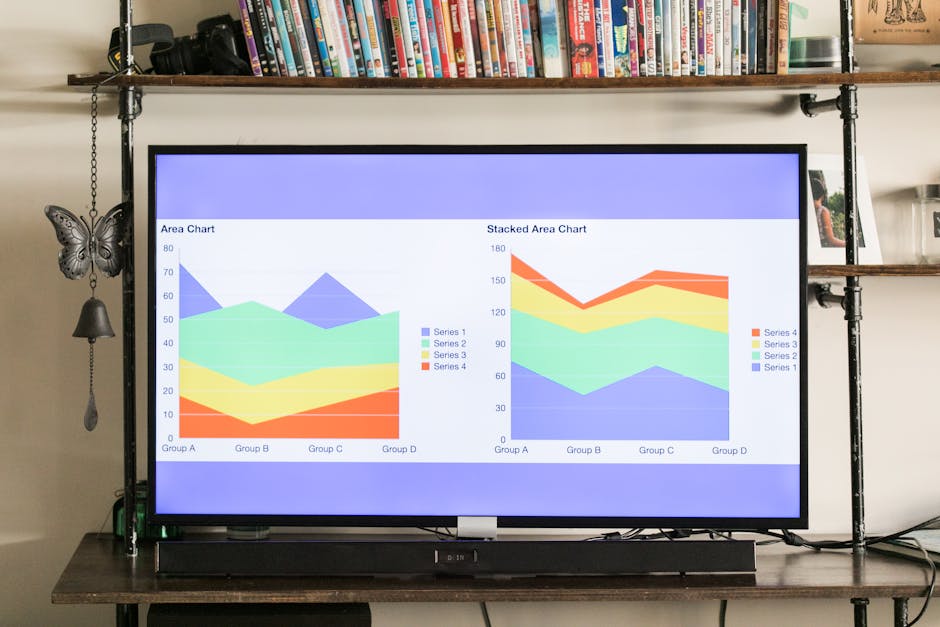Exploring Technology Trends in the Housing Market
When we think about the housing market, images of “For Sale” signs, open houses, and real estate agents often come to mind. However, the landscape of the housing market is constantly evolving, driven by technological advancements that are revolutionizing the way we buy, sell, and interact with real estate. From virtual home tours to AI-powered pricing tools, technology is reshaping the housing market in profound ways. In this article, we will delve into the latest technology trends in the housing market, exploring how innovation is changing the way we think about and engage with real estate.
The Rise of Virtual Reality in Real Estate

One of the most exciting technology trends in the housing market is the use of virtual reality (VR) to create immersive home tours. VR allows potential buyers to “walk through” a property from the comfort of their own homes, experiencing the space as if they were physically present. This technology has become increasingly popular in recent years, especially in the wake of the COVID-19 pandemic, which made traditional open houses and in-person tours more challenging.
Real estate companies and agents are harnessing the power of VR to offer 3D tours of properties, giving buyers a comprehensive view of the home’s layout, design, and features. This not only saves time and resources for both buyers and sellers but also allows for a more interactive and engaging home-buying experience. With VR technology, buyers can explore multiple properties in a single sitting, narrowing down their choices more efficiently.
The Internet of Things (IoT) and Smart Homes

Another major technology trend in the housing market is the integration of the Internet of Things (IoT) into smart homes. IoT refers to the network of interconnected devices and sensors that communicate with each other to automate tasks and improve efficiency. In the context of real estate, IoT technology is being used to create smart homes that offer enhanced security, energy efficiency, and convenience.
Smart devices such as thermostats, lighting systems, security cameras, and appliances can be controlled remotely via a smartphone or voice command. This allows homeowners to monitor and manage their homes from anywhere, providing peace of mind and flexibility. Additionally, IoT-enabled homes can collect data on energy usage, security threats, and maintenance needs, helping homeowners optimize their living spaces and reduce costs.
Artificial Intelligence in Pricing and Market Analysis

Artificial intelligence (AI) is also playing a significant role in the housing market, particularly in pricing and market analysis. AI algorithms can analyze vast amounts of data, including property values, market trends, and demographic information, to generate accurate pricing estimates and predict future market conditions. This technology enables real estate agents and investors to make data-driven decisions based on objective analysis rather than subjective judgment.
AI-powered tools can also help streamline the process of buying and selling homes by automating tasks such as lead generation, customer inquiries, and property evaluations. By leveraging AI technology, real estate professionals can improve their efficiency, better serve their clients, and stay ahead of the competition in a rapidly evolving market.
Blockchain and Secure Transactions

Blockchain technology has the potential to revolutionize the way real estate transactions are conducted by providing a secure and transparent platform for buying, selling, and recording property ownership. Blockchain is a decentralized digital ledger that enables secure, tamper-proof transactions without the need for intermediaries such as banks or lawyers.
By using blockchain technology, real estate transactions can be executed more efficiently, with reduced risks of fraud and errors. Smart contracts, which are self-executing contracts with the terms of the agreement directly written into code, can automate the transfer of property titles, escrow payments, and other contractual obligations. This not only speeds up the transaction process but also increases trust and transparency between buyers and sellers.
Augmented Reality for Home Design and Renovation
Augmented reality (AR) is another technology trend that is making waves in the housing market, particularly in the realm of home design and renovation. AR technology overlays digital elements onto the real-world environment, allowing homeowners to visualize and plan home improvements before making any physical changes.
With AR apps and tools, homeowners can see how different paint colors, furniture arrangements, or renovation designs would look in their space, helping them make informed decisions and avoid costly mistakes. This technology is especially useful for interior designers, contractors, and DIY enthusiasts who want to experiment with various design ideas without committing to them permanently.
Sustainability and Green Technology
As the demand for eco-friendly homes and sustainable living practices grows, green technology is becoming increasingly prevalent in the housing market. From solar panels and energy-efficient appliances to smart irrigation systems and green building materials, homeowners are looking for ways to reduce their carbon footprint and lower their utility bills.
Green technology not only benefits the environment but also adds value to properties by increasing energy efficiency, reducing operating costs, and attracting environmentally conscious buyers. Real estate developers and builders are incorporating sustainability features into new construction projects, while existing homeowners are retrofitting their homes with green upgrades to enhance their property’s value and appeal.
Challenges and Considerations
While technology has brought many benefits to the housing market, it also presents challenges and considerations that must be addressed. Privacy concerns, data security risks, and digital divide issues are some of the key challenges facing the adoption of technology in real estate. Additionally, the rapid pace of technological innovation requires real estate professionals to continuously update their skills and knowledge to stay competitive in the market.
It is essential for stakeholders in the housing market to strike a balance between embracing technology for its transformative potential and addressing the ethical, legal, and social implications of its widespread adoption. By navigating these challenges thoughtfully and responsibly, the housing market can harness the full power of technology to create more efficient, transparent, and sustainable real estate transactions.
Conclusion
Technology is reshaping the housing market in profound ways, from virtual reality home tours to AI-powered pricing tools and blockchain transactions. These advancements are revolutionizing the way we buy, sell, and interact with real estate, offering new possibilities for homeowners, buyers, and real estate professionals. By embracing technology trends in the housing market, we can create more efficient, transparent, and sustainable real estate transactions that benefit everyone involved.
As we look to the future of the housing market, it is clear that technology will continue to play a central role in shaping the industry and driving innovation. Whether you are a homeowner, buyer, or real estate professional, staying informed and adapting to new technological trends will be key to success in a rapidly evolving market. By leveraging the power of technology, we can unlock new opportunities and create a more connected, efficient, and sustainable housing market for all.




